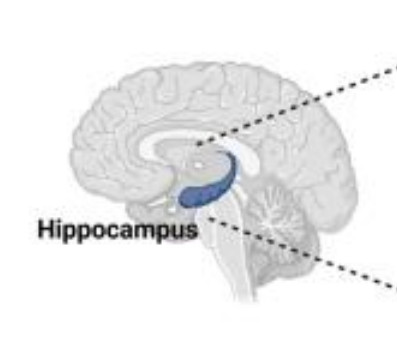[GT] мқёк°„ н•ҙл§Ҳ м „кө¬ м„ёнҸ¬мқҳ нҳҲмІӯ л…ём¶ңмқ„ нҶөн•ң м•Ңмё н•ҳмқҙлЁёлі‘ 진н–ү мҳҲмёЎ
By Aleksandra Maruszak, BRAIN, Oxford University Press, January 27, 2023
нӮ№мҠӨ м№јлҰ¬м§Җ лҹ°лҚҳ(King's College London)мқҳ мғҲлЎңмҡҙ м—°кө¬лҘј нҶөн•ҙ кё°мЎҙ мһ„мғҒ 진лӢЁліҙлӢӨ мөңлҢҖ 3.5л…„ мқјм°Қ м•Ңмё н•ҳмқҙлЁёлі‘ мң„н—ҳмқ„ мҳҲмёЎн•ҳлҠ” лҚ° мӮ¬мҡ©н• мҲҳ мһҲлҠ” нҳҲм•Ў кё°л°ҳ н…ҢмҠӨнҠёк°Җ нғ„мғқн–ҲлӢӨ.
м Җл„җ вҖҳлёҢл Ҳмқё(Brain)вҖҷм—җ л°ңн‘ңлҗң мқҙ м—°кө¬лҠ” мқёк°„ нҳҲм•Ўмқҳ кө¬м„ұ мҡ”мҶҢк°Җ мӢ кІҪ л°ңмғқ(neurogenesis)мңјлЎң л¶ҲлҰ¬лҠ” кіјм •мқё мғҲлЎңмҡҙ лҮҢ м„ёнҸ¬мқҳ нҳ•м„ұмқ„ мЎ°м Ҳн• мҲҳ мһҲлӢӨлҠ” мқҳкІ¬мқ„ л’·л°ӣм№Ён•ңлӢӨ.
мӢ кІҪ л°ңмғқмқҖ н•ҷмҠөкіј кё°м–өм—җ кҙҖм—¬н•ҳлҠ” н•ҙл§Ҳ(hippocampus)лЎң л¶ҲлҰ¬лҠ” лҮҢмқҳ мӨ‘мҡ”н•ң л¶Җ분м—җм„ң л°ңмғқн•ңлӢӨ.
мқҙнӣ„ м•Ңмё н•ҳмқҙлЁёлі‘мқҙ м•…нҷ”лҗҳкі л°ңлі‘н•ң м—°кө¬ м°ёк°ҖмһҗлЎңл¶Җн„° мҲҳл…„м—җ кұёміҗ мҲҳ집н•ң нҳҲм•Ў мғҳн”Ңмқ„ нҶөн•ҙ лҜём„ұмҲҷ лҮҢ м„ёнҸ¬м—җм„ң н•ҙл§Ҳ лүҙлҹ°мңјлЎңмқҳ м „нҷҳмқҙ мҰқк°Җн•ң кІғмңјлЎң лӮҳнғҖлӮ¬лӢӨ.
мқҙл ҮкІҢ мҰқк°Җлҗң мӢ кІҪ л°ңмғқмқҳ к·јліём Ғ мқҙмң лҠ” л¶Ҳ분лӘ…н•ҳм§Җл§Ң, м—°кө¬мһҗл“ӨмқҖ мқҙкІғмқҙ м•Ңмё н•ҳмқҙлЁёлі‘ л°ңлі‘ нҷҳмһҗк°Җ кІҪн—ҳн•ҳлҠ” лҮҢ м„ёнҸ¬ мҶҗмӢӨм—җ лҢҖн•ң мЎ°кё° ліҙмғҒ л©”м»ӨлӢҲмҰҳмқј мҲҳ мһҲлӢӨлҠ” мқҙлЎ мқ„ м„ёмӣ лӢӨ.
мқҙлІҲ м—°кө¬м—җм„ң м—°кө¬м§„мқҖ мӢ кІҪ л°ңмғқ кіјм •мқ„ мқҙн•ҙн•ҳкі мқҙ кіјм •кіј кҙҖл Ёлҗң ліҖнҷ”лҘј нҷңмҡ©н•ҳм—¬ м•Ңмё н•ҳмқҙлЁёлі‘мқ„ мҳҲмёЎн•ҳлҠ” кІғмқ„ лӘ©н‘ңлЎң н–ҲлӢӨ.
к·ё кІ°кіј, м—°кө¬мһҗл“ӨмқҖ мӢ мІҙ мҲңнҷҳкі„к°Җ мғҲлЎңмҡҙ м„ёнҸ¬лҘј нҳ•м„ұн•ҳлҠ” лҮҢ лҠҘл Ҙм—җ мҳҒн–Ҙмқ„ лҜём№ мҲҳ мһҲлӢӨлҠ” мөңмҙҲмқҳ мҰқкұ°лҘј л°ңкІ¬н•ң кІғмқҙлӢӨ.
м—°кө¬мһҗл“ӨмқҖ м°ёк°Җмһҗл“Өмқҙ м•Ңмё н•ҳмқҙлЁёлі‘ 진лӢЁмқ„ л°ӣмқҖ мӢңм җмңјлЎңл¶Җн„° к°ҖмһҘ л©ҖлҰ¬ мҲҳ집лҗң нҳҲм•Ў мғҳн”Ңмқ„ мЎ°мӮ¬н•ң кІ°кіј, мһ„мғҒ 진лӢЁ м „ 3.5л…„ м „м—җ мӢ кІҪ л°ңмғқ ліҖнҷ”к°Җ мқјм–ҙлӮң кІғмқ„ нҷ•мқён• мҲҳ мһҲм—ҲлӢӨ.
мқҙ л°ңкІ¬мқҖ мқҳмӮ¬к°Җ 비мҷёкіјм Ғ м ‘к·јлІ•мқ„ мӮ¬мҡ©н•ҳм—¬ нӣЁм”¬ лҚ” мқјм°Қ м•Ңмё н•ҳмқҙлЁёлі‘ л°ңлі‘мқ„ мҳҲмёЎн• мҲҳ мһҲлҸ„лЎқ лҸ„мӣҖмқ„ мЈјкё° л•Ңл¬ём—җ м•Ңмё н•ҳмқҙлЁёлі‘м—җ лҢҖн•ң л§Өмҡ° мӨ‘мҡ”н•ң м§„м „мқҙлқј н• мҲҳ мһҲлӢӨ.
мқҙлҠ” м•„л°ҖлЎңмқҙл“ң л°Ҹ нғҖмҡ° 축м Ғкіј к°ҷмқҖ м§Ҳлі‘мқҳ кі м „м Ғ 징нӣ„мҷҖ кҙҖл Ёлҗң лӢӨлҘё нҳҲм•Ў кё°л°ҳ л°”мқҙмҳӨл§Ҳм»ӨлҘј ліҙмҷ„н• мҲҳлҸ„ мһҲлӢӨ.
мқҙм ң лҚ” лӢӨм–‘н•ң лӢӨмҲҳмқҳ мӮ¬лһҢл“Өмқ„ лҢҖмғҒмңјлЎң мқҙ кІ°кіјлҘј кІҖмҰқн•ҙм•ј н• лӢЁкі„мқҙлӢӨ.
- BRAIN, January 27, 2023, вҖңPredicting Pro gression to AlzheimerвҖҷs Disease with Human Hippocampal Progenitors Exposed to Serum,вҖқ by Aleksandra Maruszak, et al. © 2023 2023 Oxford University Press. All rights re served.
To view or purchase this article, please visit:







